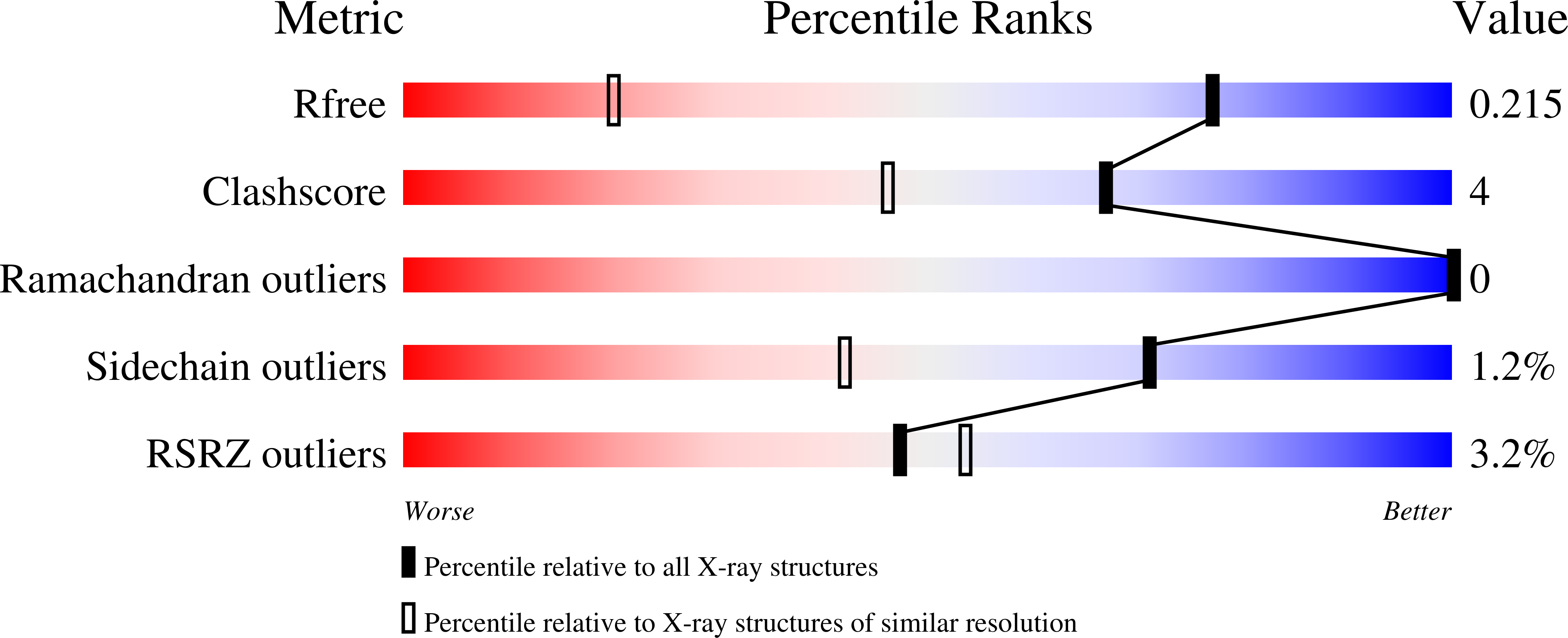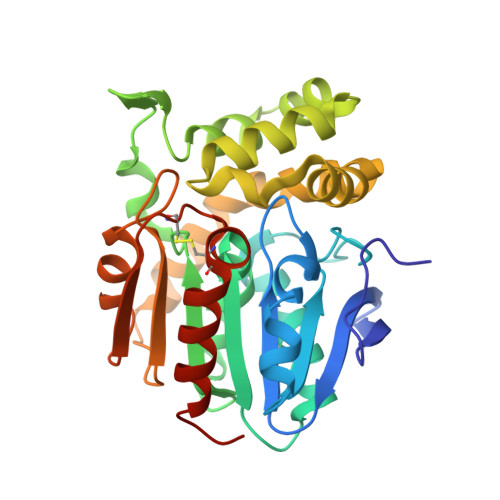Inhibiting an Epoxide Hydrolase Virulence Factor from Pseudomonas aeruginosa Protects CFTR.
Bahl, C.D., Hvorecny, K.L., Bomberger, J.M., Stanton, B.A., Hammock, B.D., Morisseau, C., Madden, D.R.(2015) Angew Chem Int Ed Engl 54: 9881-9885
- PubMed: 26136396
- DOI: https://doi.org/10.1002/anie.201503983
- Primary Citation of Related Structures:
4DLN, 4DM7, 4DMF, 4DMH, 4DMK, 4YX9 - PubMed Abstract:
Opportunistic pathogens exploit diverse strategies to sabotage host defenses. Pseudomonas aeruginosa secretes the CFTR inhibitory factor Cif and thus triggers loss of CFTR, an ion channel required for airway mucociliary defense. However, the mechanism of action of Cif has remained unclear. It catalyzes epoxide hydrolysis, but there is no known role for natural epoxides in CFTR regulation. It was demonstrated that the hydrolase activity of Cif is strictly required for its effects on CFTR. A small-molecule inhibitor that protects this key component of the mucociliary defense system was also uncovered. These results provide a basis for targeting the distinctive virulence chemistry of Cif and suggest an unanticipated role of physiological epoxides in intracellular protein trafficking.
Organizational Affiliation:
Department of Biochemistry, Geisel School of Medicine at Dartmouth, 7200 Vail Building, Hanover, NH 03755 (USA) http://www.dartmouth.edu/∼madden.














